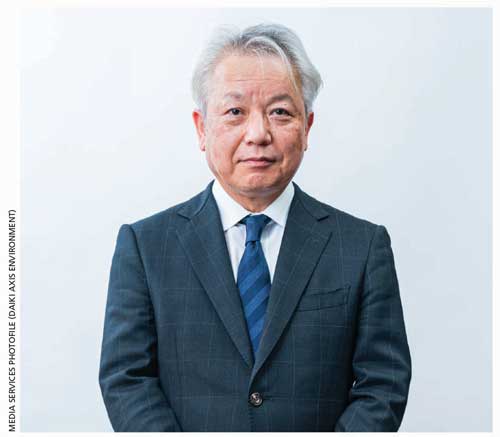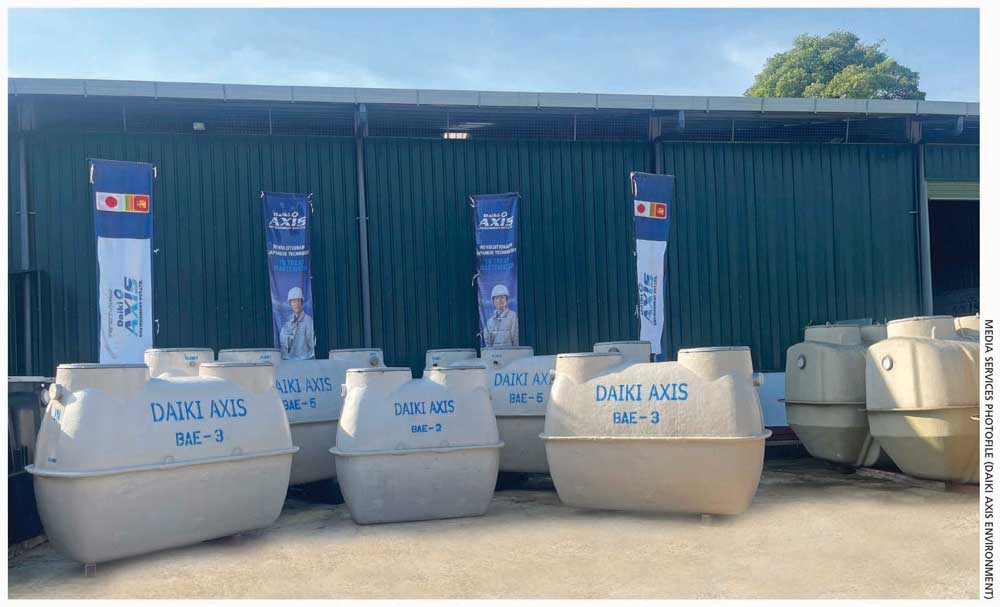
Managing Director
Q: How does Daiki Axis assess potential markets for expansion?
A: We employ a comprehensive approach to assess potential markets for expansion. Our evaluation includes a thorough analysis of critical factors including market size, the competitive landscape, and water quality laws and regulations among others.
Unlike a direct on-site marketing approach, we opt for a strategic method. Specifically, we engage in the recruitment of local agents within the target market. These agents serve as our representatives, providing valuable insights and assessments of the market dynamics.
By leveraging their expertise, we gain a nuanced understanding of the market conditions, facilitating a more informed and effective expansion strategy. This approach enables us to make data driven decisions and ensures a thorough evaluation of potential markets before we commit to expansion initiatives.
Q: What criteria does the company consider when entering a new market?
A: When entering a new market, Daiki Axis prioritises key criteria including a thorough analysis of market size and demographics, an assessment of the competitive landscape, examination of the sewage penetration rate to gauge infrastructure development and water quality regulations.
By meticulously evaluating these aspects, we aim to tailor our strategies, mitigate potential risks and establish a strong foundation for successful expansion in diverse markets.
Q: Can you outline Daiki’s overall global business strategy?
A: In our midterm management plan, we’ve outlined a target of achieving US$ 28 million in sales from our overseas business by 2025, constituting one-tenth of our overall group sales. We’re pursuing two major overseas business strategies to meet this goal.
Firstly, our focus is on penetrating the Indian market, given its status as the world’s most populous country with over 1.4 billion people. With an economic growth rate of 7.2 percent in 2022 and projected growth of 6.3 percent in 2023, we anticipate significant economic development in the region.
To bolster our presence in India, we established a contract manufacturing factory in 2019 and our own factory in 2022, signalling our commitment to tapping into the domestic market.
Secondly, we’re strategically targeting sales to Asian countries, leveraging our Indonesia factory, established through a 2013 merger and acquisition opportunity with a local company. This core facility positions us to build a robust sales network, ensuring optimal utilisation and capacity of the factory.
Q: How does the company adapt its strategy to different regions or markets?
A: As previously mentioned, our primary market focus is on the Indian domestic market.
For Johkasou products originating from our Indonesia factory however, we face challenges such as high marine transportation costs and customs duties due to the nature of the completed products resembling large tanks, leading us to explore strategic alternatives.
One such approach is the Sri Lanka model, where we supply Johkasou components of up to five cubic metres a day from Japan or external partner factories. These components are then assembled in the Sri Lanka-based facility, undergo finalisation and are subsequently sold in the domestic market.
While Japan has established laws governing Johkasou standards – encompassing water quantity, water quality load, discharge water quality and maintenance – the absence of similar regulations in our operating countries prompts our active engagement in lobbying efforts.
We are advocating for the development of comprehensive laws and regulations spanning the entire manufacturing to maintenance process, as part of our commitment to aligning with international standards and ensuring product consistency across diverse markets.

Q: In what ways does Daiki customise its products or services to meet local market needs?
A: Johkasou serves as a wastewater treatment device designed to cleanse and purify domestic wastewater, before responsibly discharging it into rivers, lakes, marshes and the sea. Our approach involves a meticulous examination of the volume and load of the specific domestic wastewater in each locale, guiding the selection of the most suitable product to meet those requirements.
Additionally, we acknowledge the importance of adapting to local water quality standards and in certain instances, our products are customised to align seamlessly with these standards.
This commitment to tailored solutions ensures not only effective wastewater treatment but also compliance with the diverse regulatory frameworks governing water quality in different regions.
Q: How does Daiki leverage technology to support global business operations?
A: Daiki maximises technological advancements to bolster global business operations through strategic implementations such as enterprise resource planning (ERP) systems, streamlined communication channels utilising platforms like Slack and effective web conferencing solutions.
Q: And how do you ensure compliance with various regulations in different countries?
A: Ensuring compliance with diverse regulations across different countries is a priority for us. This commitment encompasses adherence to regulations pertaining to company establishment, tax obligations, construction standards and water quality regulations.
By rigorously following these guidelines, we not only meet legal requirements but also demonstrate our dedication to responsible and ethical business practices in every jurisdiction where we operate.
– Compiled by Tamara Rebeira
COMPANY DETAILS
Telephone: 2499949 | Email: infolanka@daiki-axis.com | Website: www.daikiaxis.lk





